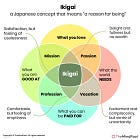The Unorthodoxy Way to Handle Your Finances
Why This Plan Is Designed to Help You Have More Cash, Get Out of Debt, and Be Financially Free

I make a decent amount of money—enough to afford some luxuries for my family, like vacations. But here’s what I’ll also say: I have a lot of debt. Not just mortgage debt, but bank loans and other obligations. And I’ve been in this constant battle between debt, expenses, loans, and trying to maintain some sense of financial stability.
I’ve read the books. I’ve studied Ramit Sethi’s I Will Teach You to Be Rich. I’ve worked with Dave Ramsey’s Snowball Method, and, to be honest, it does work. But here’s what I’ve realized: these methods work best as lifestyles, and they work exceptionally well if you’re in a certain stage of life.
But what happens when life throws you a curveball? What happens when the unexpected hits? This is where I’m trying to account for with this strategy.
This strategy is for individuals who do have income—maybe even discretionary income—but aren’t able to get their finances under control. Maybe you’re making good money but still feel like you’re treading water. Maybe you have multiple income streams, but the currency still slips through your fingers.
Personal finances aren’t often discussed, so we’re changing that today. This is my perspective and theory on it, backed by data, but please—let me know what insights you have from your experience.
Without further ado, let’s dive right in.
The Currency Flow Model: Five Categories Where Your Money Must Move
What I’m presenting here is a unique method that breaks down five different categories through which your currency needs to flow. The idea comes from a more esoteric perspective, and it’s rooted in this truth: money is a currency, and we need to be extremely diligent and mindful of where this currency we generate flows.
If we are not intentional—and I mean extremely intentional—we will find out that this currency seeps through various cracks, especially in a society designed to steal the currency you work toward. This strategy is my way of looking to control this and use currency in the right way.
Before I dive in, let me establish something foundational: you should have discretionary income, and you should have multiple streams of income. Studies show that millionaires typically have multiple streams of income—not just one. The idea is that wherever we are in life, we should seek various sources of income and not depend on a single source. This shifts you from survival mode—worrying if money will come—to surplus mode—deciding how much to generate. This is the first level of this strategy.
Generating value from multiple streams is a skillset we all possess as humans—we just need to learn it and tap into it. No matter how old we are, whether we’re Boomers or Gen Z, there are ways to do this. I’ve written about this in my articles on how not to quit and on living the life you want to live, and on living your purpose. You have to be able to scale and increase your income as needed.
The five areas where our currency flows—and where we must eliminate leakage—are:
Expenses
Savings
Cash on Hand
Loans
Credit
Let’s walk through my analysis of how to address these systematically.
Understanding the Spiritual Dimension: Usury as Sin
First, we need to address something critical that most financial advisors won’t tell you: the average American has a lot of debt, and debt is a form of usury—which has been one of the greatest sins outlawed throughout human history.
Let this statement sink in.
Muslims have outlawed usury. Judaism outlawed usury. Usury should be something forbidden in our society. Spiritually speaking, usury should be banned—yet in today’s world, our modern society is built on this sin. Our entire economic system is constructed on debt, on usury, on extraction through interest.
Think about that. Our modern society is built on one of the greatest sins recognized across multiple wisdom traditions. That should tell you already that we are living in an upside-down, immoral society. This is why I wrote that society has no other way but to steal from you. I’ve explored this in multiple articles—how society thrives off of you, the modern-day slave plantation we’re all trapped in.
When you understand this, you have to look at finances from a spiritual perspective. If usury is the number one sin, how do we get rid of this sin? And the categories I’m about to share are where our income should flow to systematically eliminate this spiritual and financial burden.
Current data backs up the damage of usury in our society.
Credit card interest rates now average between 20-25%, nearly doubled since 2013.
The average American only saves 4.6% of their disposable income—down from 10-15% in earlier decades.
The median emergency savings is just $600, with 21% of Americans having no emergency savings at all.
We are drowning in a system designed to extract from us through usurious interest while simultaneously preventing us from building the cash reserves that would free us from that extraction.
Why Mainstream Financial Advice Fails Most People
Everything I’m about to tell you contradicts mainstream financial advice. And that’s precisely the point.
Financial advisors will tell you this is wrong. They’ll say this strategy leaves money on the table, misses out on compound growth, and leads to emotional rather than rational decisions. First, let’s address their main objections directly—and show you why this model is actually more accurate for real human beings living in the real world.
Objection #1: “You’re Missing Out on Investment Returns”
Their argument: The stock market averages 10-12% annual returns. If you have debt at 6-7% interest (like a mortgage or student loans), you’re “losing money” by paying it off instead of investing that cash. This is called “opportunity cost.”
Why the Unorthodoxy model is actually more accurate:
High-interest debt is bleeding you dry—Personal loans, car loans, and credit cards can carry interest rates between 18-25%. There is NO investment that guarantees 18-25% returns. Paying off high-interest debt IS your best guaranteed return. Car loans can hit 24.99% depending on your credit score. Credit card APRs now average 20-25%. When you attack these loans aggressively, you’re getting a guaranteed return that beats any investment strategy.
Market returns are NOT guaranteed—The 10% average includes massive volatility. In 2008, the S&P 500 crashed by 36.61%. If you’re carrying debt during a crash, you face double jeopardy—your investments evaporate while your debt obligations remain unchanged. You’re bleeding from both ends.
The math only works if you actually invest the difference—Most people DON’T. They spend it. Financial advisors build models assuming perfect human discipline. My model accounts for human behavior, not just spreadsheet theory. When you free up $500 per month by not having a car payment, will you really invest all $500? Or will lifestyle inflation eat most of it?
Psychological freedom has value—Being debt-free eliminates financial vulnerability. When emergencies hit (job loss, medical issues, recession), debt obligations become existential threats. The peace of mind from zero debt payments is worth more than a theoretical 2% better return on paper.
Objection #2: “Low-Interest Debt Is Good Debt”
Their argument: Mortgages at 3-4% or student loans at 5% are “good debt” because inflation effectively reduces the real cost over time, and you can earn more by investing. Some even argue that debt is a “tool” for building wealth.
The Unorthodoxy spiritual and practical counter:
Debt is still dependency—Even “low-interest” debt ties you to the system. You’re one job loss away from foreclosure. You’re one medical emergency away from default. Every month, you’re obligated to generate enough currency to feed the debt machine, regardless of what’s happening in your life. That’s not freedom—that’s a leash.
The “low interest” era may be over—Current mortgage rates are 6.8-7.3%, not 3%. Student loan rates can reach 13.99%. Car loans can hit 24.99%. The math that made “good debt” arguments work in 2020 has completely changed. We’re no longer in a 3% mortgage environment.
It assumes perfect conditions—Again, this only works if you never lose your job, markets keep rising on schedule, you have perfect discipline, and no emergencies happen. Real life is messier. The “good debt” model collapses the moment any variable changes—and in real life, variables change constantly.
Spiritual extraction is still extraction—From the usury framework I outlined earlier: it doesn’t matter if it’s 3% or 23%—it’s still a parasitic relationship where another entity profits from your labor indefinitely. The rate of extraction may differ, but the fundamental dynamic remains: your time, your energy, your currency flowing out to enrich someone else. Every interest payment is a piece of your life you’ll never get back.
The Deeper Truth
Mainstream financial advice keeps you playing the game—always dependent on the system, always leveraged, always one crisis away from collapse. This modern system was a system that was outlawed centuries ago. Usury is Babylonian Magic.
When you eliminate debt entirely, you exit a parasitic relationship. You’re no longer generating wealth for banks through interest payments. You’re no longer vulnerable to system shocks.
“Modern financial planning is spiritual warfare disguised as financial planning.”
The Unorthodoxy model prioritizes sovereignty over fantasy. Would you rather have a theoretical 2-3% better return on paper while remaining dependent on employer matches, credit scores, and market timing? Or would you rather eliminate all extraction, build unshakable reserves, and operate from a position of complete financial independence?
I’d venture to say the latter.
Now that we’ve addressed this, let’s dive into the proposed currency flow.
The Five-Step Currency Flow: Where Your Income Must Go
When income comes in, this is the quadrant it should flow through—in this exact order.
Step 1: Expenses
First, what expenses do we have that we need to be mindful of? This works exceptionally well if you get paid every couple of weeks. Between this paycheck and that paycheck, you should have an idea of where your expenses are going, and your income should be able to cover those expenses.
Step number one: Know your expenses.
But here’s the critical part—use your expenses wisely for the things that you need, not the things that you want. Because after you address expenses, you’re going to move to savings, and you need to pay yourself. You need to “store up reserves” as the Bible states of this currency. There is a wonderful feeling when you can see your own savings account grow. This is your cash. This is your money that you’ve developed.
Step 2: Savings
Everyone talks about this, and for good reason: you need to save for yourself. You don’t know when things will happen. Some people say to save for three months. I recently have started to just save. Period.
As stated earlier, there’s the modern way of thinking that tells us not to keep any money in savings because “it loses value to inflation” or “you should be investing instead.” At the end of the day, the argument about investments is dependent on where you are in life, and I argue against investing when you have the gross burden of debt hanging over you.
This is clearly very unorthodox, but it is a way to live your life rather than what the financial system has told us to live. Use high-yield savings accounts as well, which grow your money.
So first, once you get income, this income flows into the expenses you need to live. After that, you move into your savings—you save and you pay yourself. You need to preserve this currency.
Step 3: Cash on Hand
Number three: you need to have cash on hand. This varies for every individual depending on where you are in life. Some individuals and experts say you should have cash on hand that supplements a paycheck. A very good rule to live by is to have enough cash on hand as if a paycheck is already there—so if anything were to happen, you have access to cash right away. This rule is one I’m looking to strengthen as well, so I don’t tap into savings or credit cards for any major purchases.
Notice these first three steps are really about strengthening your money. This is your money. You use your money as wisely as you need to. These are the first three places where cash needs to flow.
Step 4: Loans (Attack the Usury)
The fourth place where cash needs to flow is where you attack your loans. Once you have saved up for yourself, feel solid, and have this cash you’ve earned through your income, you need to look to attack any debt you have.
This is where we can apply the snowball method—we attack the debt with the highest interest rate. We attack these debts viciously and fervently because this is the usury we’ve been tricked into obtaining through banks, education systems, and other institutions.
This debt becomes our main focus—destroying this usury as strongly as possible. Once we get this income and we’re able to save for ourselves, pay our expenses, and maintain cash on hand, whatever is left—after we’ve made the minimum on all loans—we add to these loans as aggressively as we can.
The biggest point here is that we need to get rid of these loans as much as possible while still taking care of our expenses and maintaining our foundation.
Step 5: Credit Cards (The Psychological Trap)
The last thing I’ve realized is that we need to start paying off these credit cards—but we need to be extremely mindful about how we use them.
One of the biggest things with credit cards is that credit cards are psychological weapons. They are built into our system, and what happens is when we carry balances on these credit cards, we’re throwing cash that should be on hand into a revolving cycle of interest payments.
Some people, like Dave Ramsey, say to cut the credit cards and use cash only. This is a hybrid of that model. In today’s world, cash isn’t always the most convenient, and you also don’t want to use your debit card everywhere because of the hacks and security risks. A credit card does have the ability to pay with less risk to you—but you have to be mindful of the psychological trap.
One of the things I’ve started doing is this: If I pay for something, I pay it off right away with my credit card. It ties into the expenses piece first. What I’m mindful of is that if I’m paying for something, there’s cash on hand to cover it, there are savings to back it up, and my other expenses are covered.
If these three are not able to pay for something, I should not be paying for it.
Strengthen Yourself, Eliminate the Extraction
That’s it! That’s the Unorthodoxy Financial Framework I’ve come up with and have been implementing quite recently. Please let me know your thoughts!
The core idea is that currency is our time, our money, and our attention. We need to make sure it strengthens us rather than leaving us dependent on the system.
As we build ourselves up and build up our storehouses, we’re also eliminating this usury that we’ve been paying for. This is where we attack using the snowball method: when we get rid of these loans, we take that same payment amount and knock out all our loans, knock out our credit cards if needed, and knock out our mortgages as well.
This method should work for everyone in life. But there are certain things that need to happen for this to work:
One: You need to have multiple streams of value income (which anyone can develop) and get away from survival to surplus—this is the main step.
Two: You need to be disciplined enough to address these areas in order. This will require intentional focus, unlike we’ve seen before, since the system is designed for you not to be intentional about your finances.
This is about taking back control of your currency from a system designed to extract it from you through usury. This is about recognizing the spiritual warfare embedded in our financial system and choosing to opt out by systematically eliminating the sin of debt.
Takeaways
Usury isn’t just financial—it’s spiritual extraction. Our entire economic system is built on a sin that has been outlawed across wisdom traditions for millennia. When you carry high-interest debt, you’re not just losing money—you’re participating in a system designed to keep you dependent and drained.
The order matters more than the amount. Most financial advice tells you to invest while carrying debt, or to pay minimums while “building wealth.” This inverts the natural flow of currency. Strengthen your foundation first—expenses, savings, cash on hand—then attack the usury. Only then can you build from a position of sovereignty rather than dependence.
Currency leaks where attention fails. If you’re making decent money but still feel like you’re treading water, the problem isn’t income—it’s intentionality. Every dollar that flows without conscious direction will find a crack in the system designed to extract it from you.
Multiple income streams aren’t optional—they’re survival. Dependence on a single source of income is dependence on a system that can cut you off at any moment. Building multiple streams isn’t about greed; it’s about refusing to be trapped in a paradigm where one decision by someone else determines your family’s financial fate.
Next Steps
Map your currency flow this week. Take one paycheck cycle and track exactly where every dollar goes. Don’t judge it yet—just observe. Write down: expenses (needs vs wants), savings deposits, cash accessible within 24 hours, minimum loan payments, and credit card charges. This audit reveals where your currency is leaking.
Identify your second income stream. You already have skills, knowledge, or access to something others need. What can you monetize in the next 30 days? A consulting service, a side project, teaching what you know, flipping items—anything that generates value outside your primary job. Start small, but start. This isn’t about replacing your income tomorrow; it’s about proving to yourself that you’re not dependent on one master.
Eliminate one usury source within 90 days (or whatever timeframe works for you). Pick your smallest high-interest debt—the one you can kill fastest. After covering expenses, savings, and maintaining cash on hand, throw everything extra at it. When it’s gone, take that payment amount and roll it into the next debt. Feel what it’s like to remove one extraction point from your life.
P.S. — Two Important Notes:
First, don’t stress about money. As I’ve written in my article on Lifestyle, the best course of action is to have faith and let go. Do the work—because faith without works is dead—but don’t stress about the outcome. Trust the process.
Second, a word on gig work. I’m not a fan of jobs like DoorDash or Uber as income streams. Solely from my experience, they take more from you than they give—you end up trading time for less than it’s worth. If you need them in a pinch, fine. But I wanted to call that out.
Lastly, this is all my personal advice and what’s working for me. Take what resonates, leave what doesn’t, and apply as needed. The goal is simple: we need to control more of our currency in a system designed to extract it from us.
As always, thanks for your time. Let me know your thoughts and feedback.
— Ashe,
Franklin O’Kanu
If you enjoyed this work and gained value from it, support more work like this by becoming a paid subscriber for $5/month
If you’re already aware but want to take a step toward becoming the best human you can be, you can check out my guide.
11 Insights for Being The Best Human This 50-page guide is the clearest map I’ve created for navigating the madness of modern life. It blends ancient wisdom, spiritual clarity, and grounded daily ritual — helping you remember who you are and why you’re here.
If the world feels off, this guide will confirm why — and help you take back control.
Support Unorthodoxy!
If this article opened your eyes, there’s more behind the paywall. Exclusive, in-depth pieces that go deeper, challenge more, and reveal the truths they don’t want us to see.
🔑 Become a paid member and gain access to premium and archived articles, exclusive podcasts, and thought-provoking chats you won’t find anywhere else.
📖 Prefer a comprehensive take? My book, An Unorthodox Truth, is a fact-based journey through 200 years of deception—a must-read for those seeking clarity in a manipulated world.
☕ Feeling generous? Leave a simple tip to support this work—every bit helps me continue creating meaningful content.








You Exposed what so few know Franklin: "Usury isn’t just financial—it’s spiritual extraction". Wow!
Thank you!
Save in PMs and pay cash for everything. Robert Kiyosaki uses debt to his advantage. Read his books to find out how.